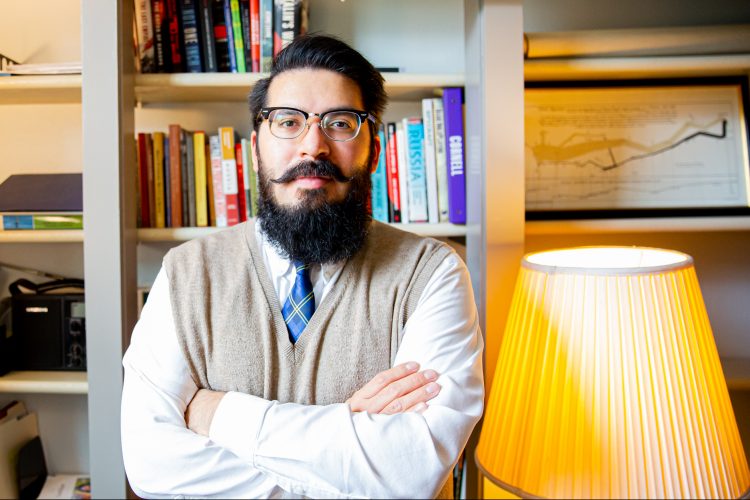One Course: International Relations in the Modern West
In his course International Relations in the Modern West, Assistant Professor of History Jonathon Dreeze takes his students on a rigorous exploration of international history to delve into how the world became what it is today.
“Sometimes reality can feel a little bit like a dream, in the sense that in the dream you don’t know how you ended up at a place–you just kind of appear there. I think history, and especially this class, helps to explain that by explaining the norms of society and the reasons why the world functions the way it does today,” Dreeze says.
What they learn

The course examines the political, economic, and military relations between the major powers of the world from the early 20th century to the breakup of the Soviet Union in the ’90s. The 300-level class is required for the history major and is often also required for international relations majors.
Students discuss the major conflicts and seek to understand why the U.S. got involved in WWI and WWII, and the rationale behind the Korean and Vietnam wars. They also study how domestic policies interact with international policies, including culture, military matters, and ideology.
Dreeze says the intensity of this course taught on the block plan helps prepare students for graduate-level history courses.
How they learn
Students read up to 100 pages a night. Dreeze uses a variety of teaching methods, including lectures, extended group class discussions, and role-playing scenarios. Students team up to act out their version of what happened in the Munich Agreement and the Cuban Missile Crisis.
“I encourage them to be a little bit over the top and flamboyant about it,” Dreeze says. “That extra space where they can be a little bit silly but also where it’s grounded in historical reality allows them to enjoy these simulation assignments.”
Meredith Sconce ’26, a secondary education history major, says she enjoyed the open discussions and debates that are frequently part of the class.
“Dr. Dreeze often spends time with us in a Socratic seminar style, where he poses open-ended questions for us. This is the highest-level history class offered at Cornell, which means it is predominantly juniors and seniors, most of whom are majoring in history or international relations. As such, there is wonderful class engagement, peer interaction, and high-quality conversation and debate, which is very enriching.”
Selected Readings
- “Darkness at Noon” by Arthur Koestler
- “Prompt and Utter Destruction” by J. Samuel Walker
- “The Origins of the Vietnam War” by Fredrik Logevall



